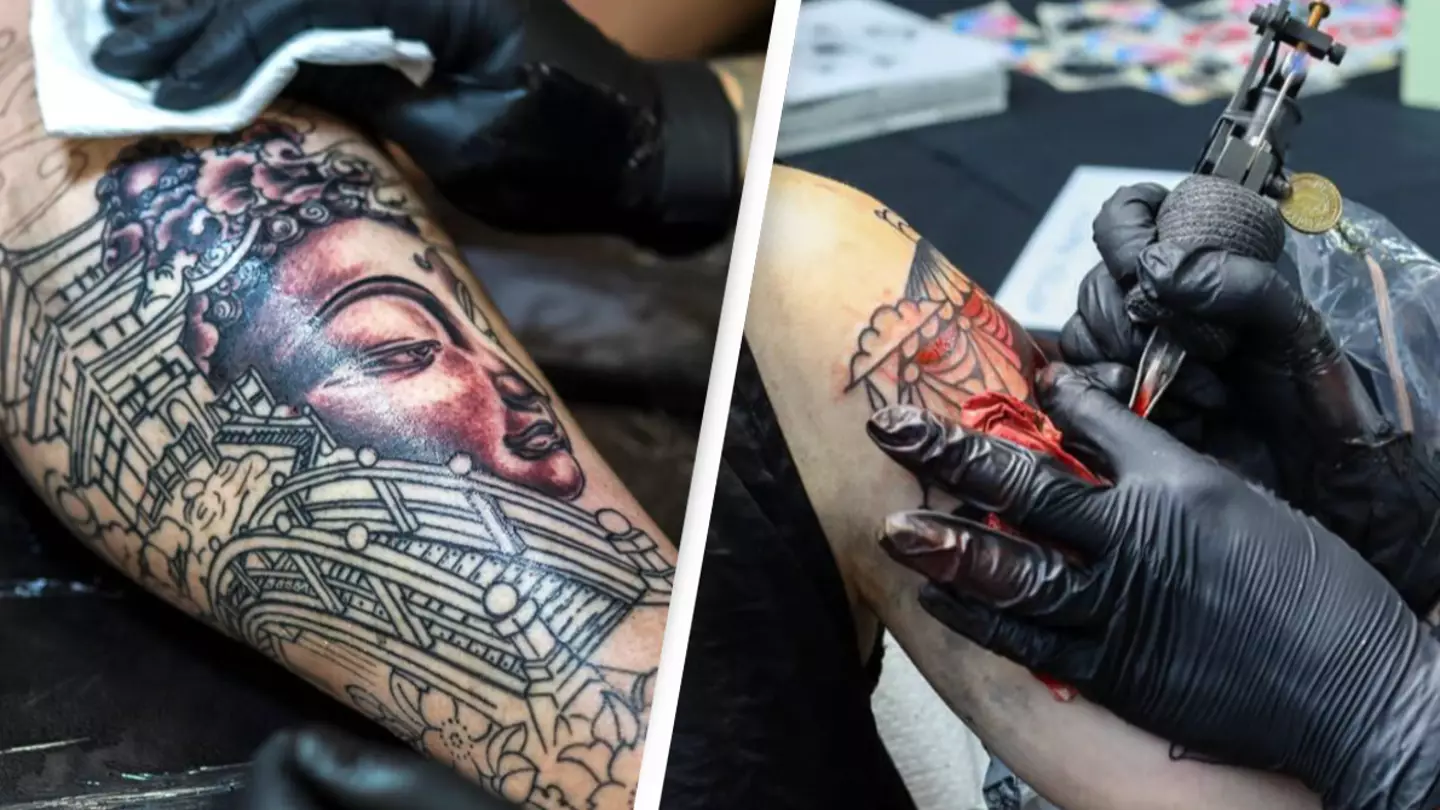
A study of tattoo inks has revealed nearly half contained chemicals which can cause cancer or trigger cancerous mutations.
Findings of the study were presented at a meeting of the American Chemical Society in Chicago, Illinois on Wednesday (24 August), following the research by scientists lead by John Swierk, Assistant Professor of Inorganic Chemistry at Binghamton University, State University of New York.
It included samples of 56 popular tattoo inks used to draw the popular skin art, as researchers claim there is little known about what is actually used in the substance.

Advert
There are two elements that make up a tattoo; the pigment, which can be a molecular compound or a solid compound, and carrier fluids which are typically alcohol-based.
Of the 56 samples, several were found to include substances that were not listed on the label. One of the samples revealed ethanol, which can help thin blood, while 23 pigments, typically blues and greens, were found to contain azo-compounds.
These chemical compounds are themselves safe, but they can degenerate if exposed to bacteria in the skin or too much ultra-violet light, such as that emitted in sunlight, and turn carcinogenic.
Speaking to the MailOnline about the findings, Dr. John Swierk, the chemist who led the study, said: "We don't necessarily know what the pigments break down into and so that's the real concern.
Advert
"It's possible that you might have pigments that by themselves are safe, but that photodecompose into something of concern."
Earlier this year, the European Union banned the use of two pigments, blue 15:3 and green 7, amid fears they could be toxic. The colours remain in use in the United States.

Another part of the study involved scientists investigating the size of particles in 16 inks used in tattoos. Of these, half of the samples, including black pigments, contained particles below 100 nanometers.
Advert
The size of these samples was 'concerning' to the researchers because they could 'get through the cell membrane and potentially cause harm' by triggering cancerous mutations, according to the researchers.
Swierk explained: "When you get down to that size regime you start to have concerns about nanoparticles penetrating cells, getting into the nucleus of cells, and doing damage and causing problems like cancer that way.
"Big companies manufacture pigments for everything, such as paint and textiles. These same pigments are used in tattoo inks."
Following the findings, the scientists are now striving to build the first comprehensive database of ingredients in different tattoo inks in the United States on the site What's In My Ink.
Advert
Over time, the site will include more information about the methods used by the scientists and interpretations of their findings.
If you’ve been affected by any of these issues and want to speak to someone in confidence, contact Macmillan’s Cancer Support Line on 0808 808 00 00, 8am–8pm seven days a week